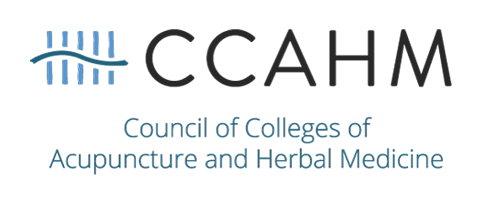Interested in a Career in Acupuncture & Herbal Medicine? Start Here!
If you have a passion for helping others achieve and maintain health and wellness, consider becoming an acupuncture & herbal medicine practitioner who are advocates for complementary and alternative medicine, using tools and techniques not typically found in Western medicine.
As with all careers in the health profession, the journey begins with education. Graduation from an accredited school with a Master’s or Doctorate degree and acquiring a state license are requirements for practitioners in nearly all states. Most states also require certification by the NCCAOM (National Certification Commission for Acupuncture and Oriental Medicine). The information below offers a summary of on each of these requirements. For more details, see the Frequently Asked Questions.
Selecting a College – More than 50 accredited and pre-accredited colleges nationwide offer Master’s and Doctorate degree programs. Prospective students can use this online search to find an accredited program. Accreditation status (by the ACAOM) is important as it represents the highest level of educational program quality assurance in the U.S. Reviewing college websites, visiting campuses and talking to administrators, faculty, current students, and graduates all provide valuable information to compare and differentiate choices. Acupuncture and herbal medicine colleges offer many different programs (including online!) and often have different philosophies and approaches. There is significant diversity in the curriculum between colleges, with representation of the traditional Chinese, Japanese, Five Element, Korean, and Vietnamese traditions.
Getting Admitted – Admission into a Master’s degree program includes completion of at least two academic years of bachelor’s level education or the equivalent. For example, certification in a medical profession requiring at least the equivalent training of a registered nurse or a physician assistant (from an institution accredited by an agency recognized by the U.S. Department of Education) is an acceptable equivalent. Note that many colleges require a Bachelor’s Degree for admission. Confirm information about specific admission requirements and address questions on admissions-related topics (including transfer credit and English language competence) before making a final selection.
Getting a Degree – Completing a Master’s degree typically takes about three years for acupuncture and four years for herbal medicine. Post-graduate doctoral degrees are offered by many colleges also. Specific curriculums vary by school, but students typically complete courses in topics including medical theory, diagnosis and treatment techniques, herbal studies, and biomedical clinical sciences. In addition, most colleges offer students practice opportunities at off-campus clinics (in both conventional and integrated medicine facilities). These opportunities provide valuable experience in patient care and working with other health professionals.
Getting Licensed – All states except for South Dakota, Oklahoma and Alabama currently require licensing (or the state’s equivalent). Each state’s requirements, laws and regulations vary significantly. As mentioned above, most states require completion of one or more of NCCAOMs exams for licensing in addition to degree completion. Consult the NCCAOM's State Licensure Requirements Interactive Map for more information. California practitioners must pass the California Acupuncture License Exam (CALE), although the state’s Acupuncture Board has recommended the introduction of legislation to require the NCCAOM exam with a supplemental exam.
Practicing Acupuncture and Herbal Medicine – Once licensed, a practitioner can explore multiple career and practice setting options. Working in private practice, clinics, hospitals and integrative care settings are common options, but many choose opportunities in government, research or industry. While actual duties will vary, all practitioners must follow their state’s “scope of practice”, which specifies what a licensed practitioner is permitted to do. Diagnostic evaluation, treatment of animals and a wide variety of complementary therapies are some of the practice topics defined within the states’ scopes of practice.
